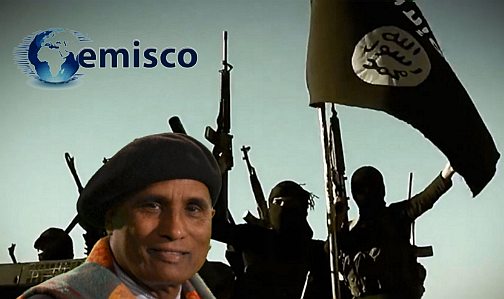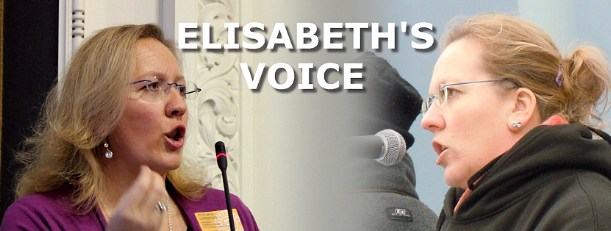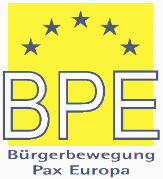Henrik Clausen and Elisabeth Sabaditsch-Wolff have once again volunteered for hazardous duty in Warsaw at the annual ODIHR conference of the OSCE™ (see this post for an explanation of my use of “™” following the acronym). Below is their report.

OSCE: An organization on the ropes after failing at its primary mission
by Henrik Raeder Clausen and Elisabeth Sabaditsch-Wolff
So we’re back, talking truth to power at the annual OSCE “Human Dimension” conference. While the Warsaw location Hotel Sofitel is the same, much is different. Old adversaries are no longer there; new challenges are emerging. We are still heeding the call by President Reagan to remain vigilant.
The all-pervading backdrop for this year’s event is of course the war in Ukraine. This is a major embarrassment for the Organization for Security and Cooperation in Europe, as it has as its primary mission to prevent any such wars from ever breaking out again by having a forum to put forth security concerns from the various participating States (pS), to work out a compromise diplomatically, and thus to prevent any such conflicts from escalating.
For several years, our group of freedom activists has watched those dialogues become ever less constructive — but those are not our battles to fight. We originally joined to halt subversive activities from Islamist states and organizations, such as the OIC (Organization of Islamic Cooperation), Turkey and — as it turned out — even the Muslim Brotherhood.
Unfortunately, as old enemies leave, new ones appear. A group called “CAGE UK” presented a comprehensive Muslim gripe list, both in the plenary session and at a sparsely-attended side event about “state-sponsored Islamophobia” in Austria, Denmark, and the United Kingdom. We attended the side event and asked for a legal definition of the word “Islamophobia”. Puzzled blank stares revealed that they did not have one. One side note, it was interesting that the OSCE painstakingly avoided the use of the word “Islamophobia” at all times.
We found this year’s event to be scaled back significantly. Fewer plenary sessions, fewer worthwhile side events, fewer NGOs in attendance. Even the interpretation was cut to only cover English and Russian, and there was no longer a work room for the NGOs.
Our delegation was also just a core team:
- Elisabeth Sabaditsch-Wolff, Bürgerbewegung Pax Europa
- Henrik Ræder Clausen, Wiener Akademikerbund
- Peter McIlvenna, Hearts of Oak
Of our old time adversaries, many have given up and left the battleground: Turkey was still in full boycott, and with them several Turkish-funded GONGOs (Government Organized “Non-Governmental Organizations”). Open Society groups, which used to flood the conference with talks and glossy brochures, were not there. Even Bashy Quraishy (EMISCO), who used to embarrass himself responding to our interventions, was absent.

So we got down to work, as usual, with speeches and interventions. Our new delegation member, Peter from Hearts of Oak, got a fast-track introduction to how the forum works. and caught on to it very quickly. No wonder: As he has worked for our mutual friend Sam Solomon for fifteen years, we are thinking along the same lines.
Here’s what we brought up in the plenary. Please enjoy, and share:





